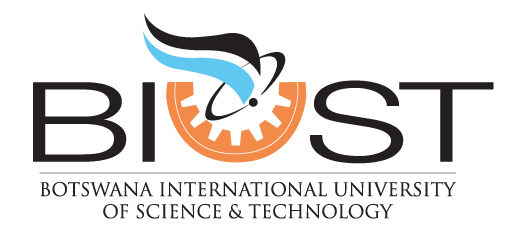The Directorate of Technology Transfer at the Botswana International University of Science and Technology (BIUST) recently hosted a public lecture by Professor Murtala Adamu Zungeru, drawing together students, academics, engineers, and researchers for a compelling discussion on intellectual property (IP). The lecture, titled “Intellectual Property Rights – A Case of the BIUST Patents on Method and System for Sorting of Diamonds; An Electrical Switching System for a Building or Installation; and A Farmyard Access Control System and Method,” highlighted the critical role of patents in protecting and commercializing innovation.
In his opening remarks, BIUST Vice Chancellor, Professor Otlogetswe Totolo, expressed his gratitude to Professor Zungeru, emphasizing the importance of such lectures in translating complex technologies into everyday understanding. He praised the lecture’s focus on smart systems that conserve energy, urging attendees to let the knowledge gained inspire new inventions.
Professor Totolo also reinforced BIUST’s commitment to building a knowledge-based economy, stating that intellectual property is essential to transforming research into financial returns. With enthusiasm, he shared the exciting news of Botswana’s recent satellite launch, explaining how the knowledge it gathers will support national development in areas such as urban planning and agriculture. He called on young people to take an active role in sharing and applying scientific knowledge for the nation’s benefit.
Taking the stage, Professor Zungeru began by demystifying the concept of Intellectual Property. He explained that IP encompasses creations of the mind and is broadly categorized into Industrial Property—which includes patents, trademarks, industrial designs, and trade secrets—and Copyright and Related Rights, which cover artistic and literary works.
He clarified that while copyrights automatically protect original works upon creation, patents are exclusive rights granted for new, useful, and non-obvious inventions. A patent, he noted, serves as a legal tool to exclude others from using an invention without permission, offering inventors a competitive edge, potential revenue streams through licensing, and a way to enhance their company’s market value and image.
Professor Zungeru outlined the key benefits of patenting, such as:
• Preventing others from patenting the same invention
• Strengthening market position and profitability
• Enabling licensing and cross-licensing opportunities
• Enhancing access to new markets and investment
• Protecting against imitation and unauthorized use
The lecture featured in-depth presentations on BIUST’s patented innovations: A Method and System for Sorting Diamonds, An Electrical Switching System for Buildings, and A Farmyard Access Control System and Method.
Professor Zungeru shared his personal experience with international patenting in the USA, China, and Botswana, explaining the processes, costs, and strategic value of protecting innovations at both local and global levels.
Highlighting BIUST’s technological advancements, he showcased the university’s X-Ray Diamond Sorter, now ready for commercial release, and the Smart Switching System, which is fully operational and remotely controllable.
The session concluded with an engaging Q&A, reflecting the audience’s keen interest and the impactful nature of the presentation. Professor Zungeru’s lecture not only deepened attendees’ understanding of IP but also underscored its role in transforming innovative ideas into tangible socio-economic benefits.
